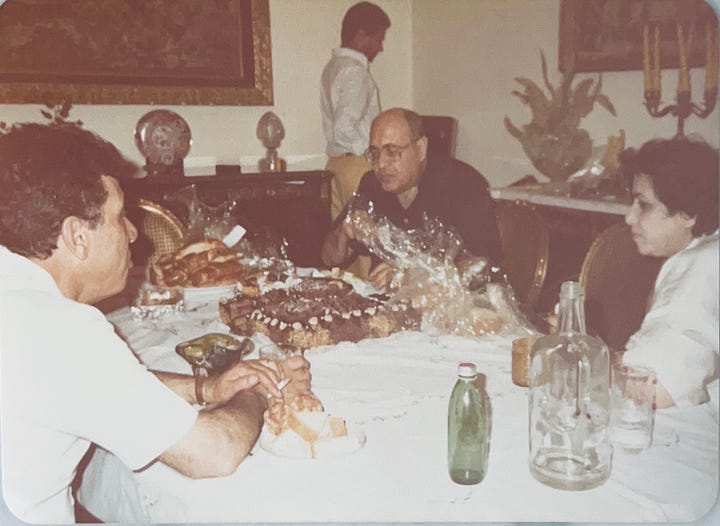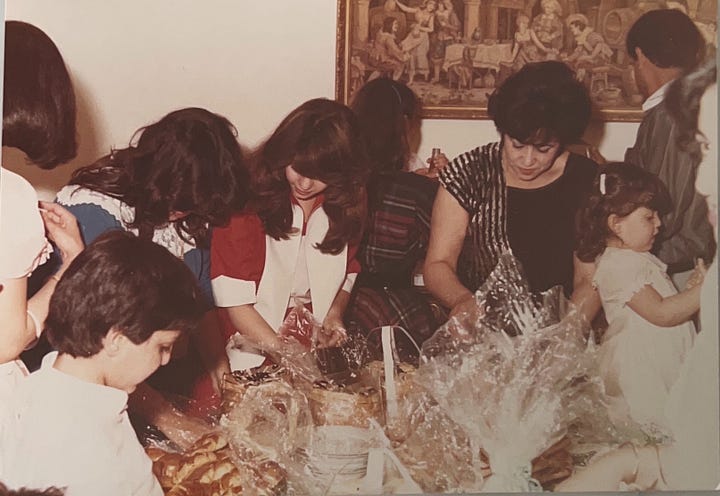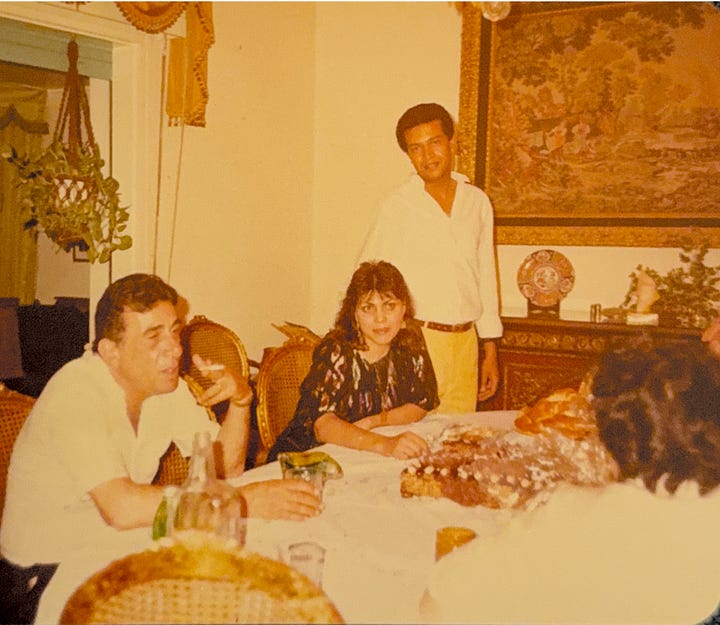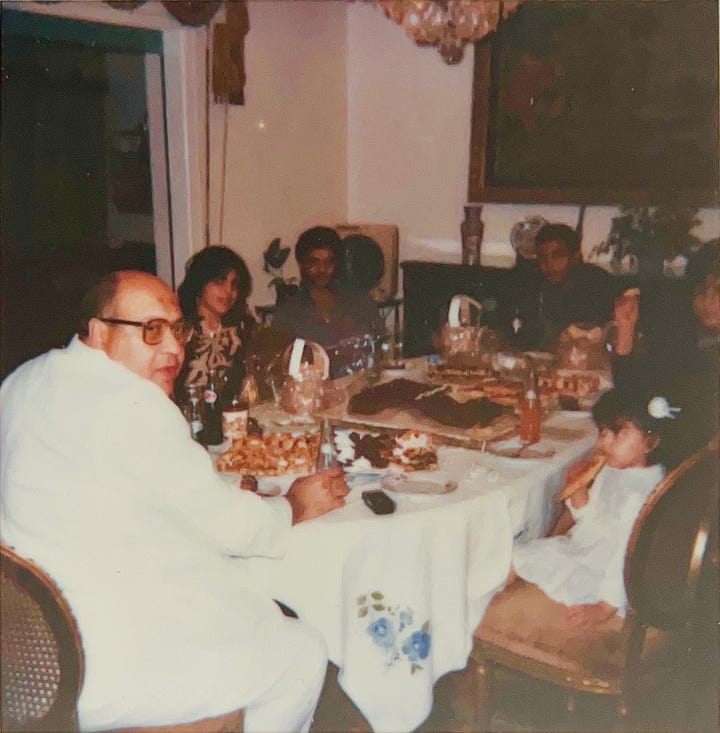It was 5am in the maternity ward of St. Barnabas hospital in Livingston, New Jersey, and the harsh glare of my laptop screen made my eyes sting. I was slouched in bed, throbbing with pain , barely able to keep my head up, as I frantically replied to emails from a customs agent’s, each marked URGENT. It was the exact situation that approximately 6 weeks prior, I had dreaded and tried to avoid.
“Dad, I really don’t want this furniture to begin with and the last thing I need is to be dealing with customs while giving birth,” I vividly recall the conversation with my dad. But it was already too late. My grandmother in Cairo had decided to empty out her long-vacant apartment and decided I should inherit her furniture. In New Jersey, I was pregnant with baby number 2 and moving into a larger home. My grandmother thought I shouldn’t be shopping for new furniture in my condition and that it made perfect sense for me to get all her exquisite furniture. My mother, delighted with the idea and my Dad, ever-willing to oblige, were already on the task before dawn had broken on the East Coast and before I had a chance to refuse.
It’s not that I wasn’t grateful for free furniture. I truly appreciated that Zozo, my grandmother, had chosen me to receive her most valuable possessions. But I also felt frustrated, even resentful. I hadn’t picked this furniture and it didn’t reflect my style or spirit. And yet, I couldn’t imagine turning it down without feeling like I was rejecting my family’s history, or worse, disrespecting her.
Six weeks later, just as I dreaded, the container of unwanted belongings from Cairo miraculously made landfall in NJ, a week early, on the same day I went into labor, also a week early.
Over the years I’ve made peace with the table. I’ve hosted countless meals around it: birthdays, Thanksgivings, Iftars, and suhoors. I’ve grumbled about how it only seats eight and doesn’t come with a leaf extender, yet I’ve squeezed in fourteen, sixteen, even twenty four once. But every time I walk past my dining room, and glimpse the hand painted plates, the marble topped hutch, and the exquisite brass inlay on the table’s sides, I’m reminded how sorely out of place it feels in my house.
Sometimes, I still fantasize about getting rid of it and replacing it with something simpler, something mine. But even the thought makes my chest tighten. Because this table—Zozo’s table— is one of the few physical ties I have to my childhood in Egypt. It’s never just been a table. It has always felt like a responsibility. A beautiful, crushing, inherited weight.
When I scroll through old family photos, that same table, now sitting 5000 miles away from where those pictures were taken, keeps showing up. I think about all the people who have gathered around it, the feasts it held, the arguments it heard, the stories it would tell if only this table could speak. Somehow, this piece of wood carries the spirit of my grandparents home, their warmth, their generosity, their love of lamaa’— the joyful gathering of family and friends.




Like so much in life, we don’t always recognize the meaning of things until much later. Diaspora has a way of splitting your heart across continents. And sometimes, the only bridge between those pieces is a table.
The other day as I strolled passed the Arhaus showroom at Short Hills, I caught myself daydreaming about redoing the dining room. But just the thought of storing Zozo’s table, let alone getting rid of it, made my heart sting. What used to be a source of resentment has softened into curiosity, a desire to know the stories behind this furniture, to pass them on.
It’s funny how the things we overlook, the ones we never asked for, can become the most meaningful.
As a lifelong foodie, I like to think that my grandfather, who died long before I got serious in the kitchen, is smiling down as I serve guests dishes he never got to taste. Maybe he’d be proud of what I’ve made on the table he once sat at.
Joyful gatherings. Generous spirit. A love of good food. That was the essence of my grandparents home. And now, their table , the one in the center of my home, is a daily reminder. A sacred relic. An anchor to a brilliant, complicated past.
And for those of you local friends who’ve been on “the list,” you already know that Zozo’s table— Sofret Zozo, in Arabic — is becoming something more. What began as a way to test new recipes on friends has grown into a living medium of storytelling, cultural exchange, and historical preservation. The very values my grandparents passed down to me — joyful gatherings, a generous spirit, and a love of good food — are now at the heart of it.
Stay tuned. Get on the list!
Xo,
Angie




I COMPLETELY understand how you feel. I haven't inherited the table yet, but all the furniture my grandfather made back in the 70s is in the parents' house, and a heavy wooden table that seats eight people and somehow has capacity for 12. I hear you about the nostalgia the furniture carries, all the laughter, arguments, delicious family meals, and loud family gatherings. On one end, yes, why would we ever give it up for something more to our taste? We just need to bring Louis XVI back in fashion.